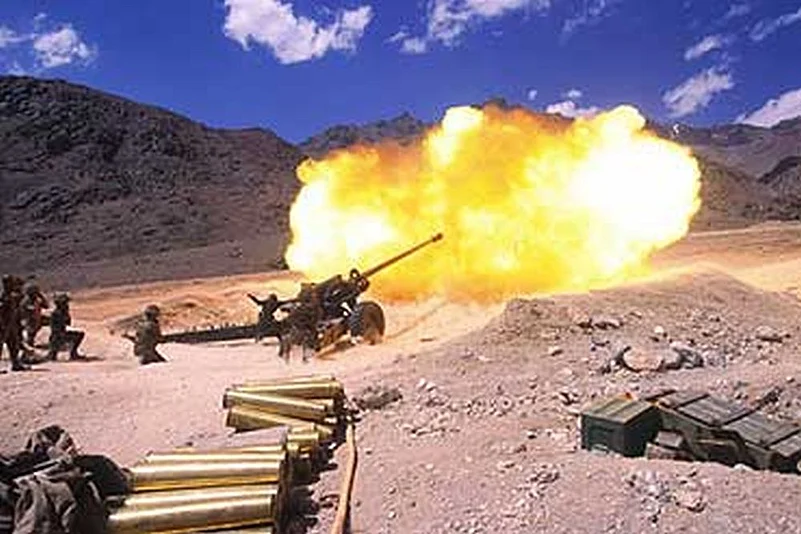The 1999 Kargil intrusion was the fallout of the failure of the military intelligence as well as other intelligence agencies, Lieutenant General (retd) Mohinder Puri said Sunday while speaking at the Bhopal Litfest .
Recalling the intrusion, Lt. General Puri said Pakistan's aim was to internationalise the Kashmir issue and change the alignment of the Line of Control in the Kargil sector by opening the conflict against India.
He had headed the 8 Mountain Division during "Operation Vijay".
"The Kargil War happened due to the failure of intelligence agencies, including military intelligence," the decorated officer said during an interaction on the second day of the Bhopal literature and art festival at Bharat Bhavan.
Advertisement
The 8 Mountain Battalion headed by him was tasked to evict the enemy from the Drass-Mushkoh Sector during "Operation Vijay".
"It was in the first week of May (1999) when 3 Infantry Division received information of an intrusion in the Batalik sector. Later on, it was detected that the intrusion had taken place over a very wide front," the Lt. General said.
The top commander said Pakistan's aim was to internationalise the Kashmir issue and to change the alignment of the LoC in the Kargil sector.
"Pakistan also wanted to interdict a road from Srinagar to Leh thus isolating Siachen. It also wanted to launch a fresh launch pad for militants from the captured area
to intrude into Himachal Pradesh," the Lt. General said.
Advertisement
The Lt. General recalled that he was tasked with restoring the sanctity of the LOC and clear the national highway 1D in the Dras- Mushkoh Sector.
Lt. General Puri further said the main credit of the Kargil victory goes to the young officers who fought bravely. "This is the hallmark of the Indian army," he added.
When asked about the regimental culture of the Indian Army, the Lt General said a regiment is a small family of around 900 soldiers, and a soldier's first commitment is towards the unit and then for the country.
"Being in uniform for 40 years, I must say that one should not tinker with the structure of regimentation. It is tried and tested structure for years," he said.
PTI




















